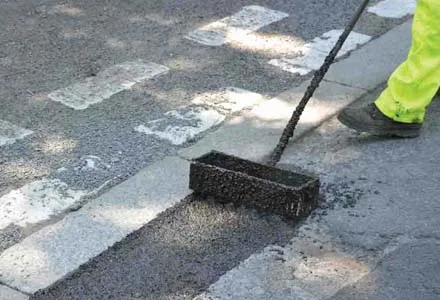Hitex International has achieved full BBA certification for its new rapid road repair products. TexPatch and TexBand Solo are fill and over-band products designed to seal and repair potholes, cracks, seams and joints, to prevent further road deterioration. As well as being quick and easy to install, these can handle traffic within minutes to speed up the repair process, minimise disruption and reduce traffic management costs.
TexPatch provides a fast, permanent and economical solution to repair potholes
December 7, 2016
Read time: 2 mins

As well as being quick and easy to install, these can handle traffic within minutes to speed up the repair process, minimise disruption and reduce traffic management costs.
TexPatch provides a fast, permanent and economical solution to repair potholes over 15mm deep and up to 1m². It is suitable for all asphaltic surfaces and is a thermoplastic material incorporating polymer modified bitumen compound and granite aggregate.
It is easy to apply using a screed box which ensures a strong thermal bond, providing a permanent solution for heavy traffic applications. The dry material is easier to handle than bituminous product, with no paper bags needing to be stripped.
TexBand Solo rapidly repairs cracks, seams and joints up to 40mm wide in all asphaltic road surfaces and can be used on highly stressed surfaces such as bends and roundabouts. It incorporates grey granite aggregate with a polished stone value (PSV) of 62+ to improve safety by optimising skid resistance. Screed applied, TexBand Solo is less susceptible to weather extremes and can be laid all year round, with two versions for use in cracks from 5-40mm wide and from 40-200mm wide.









